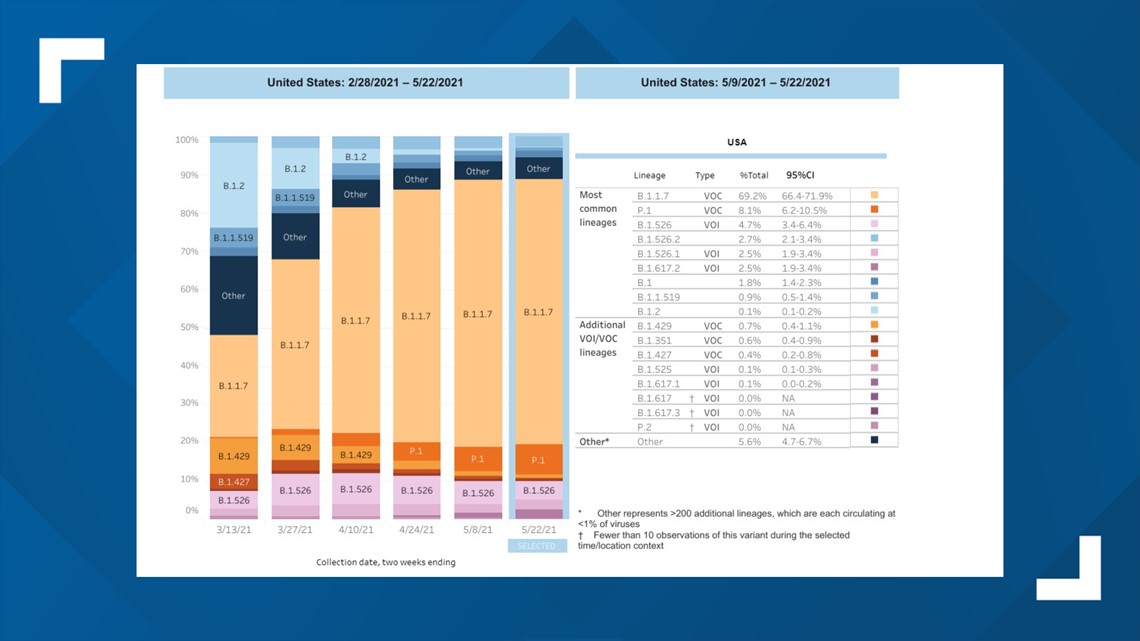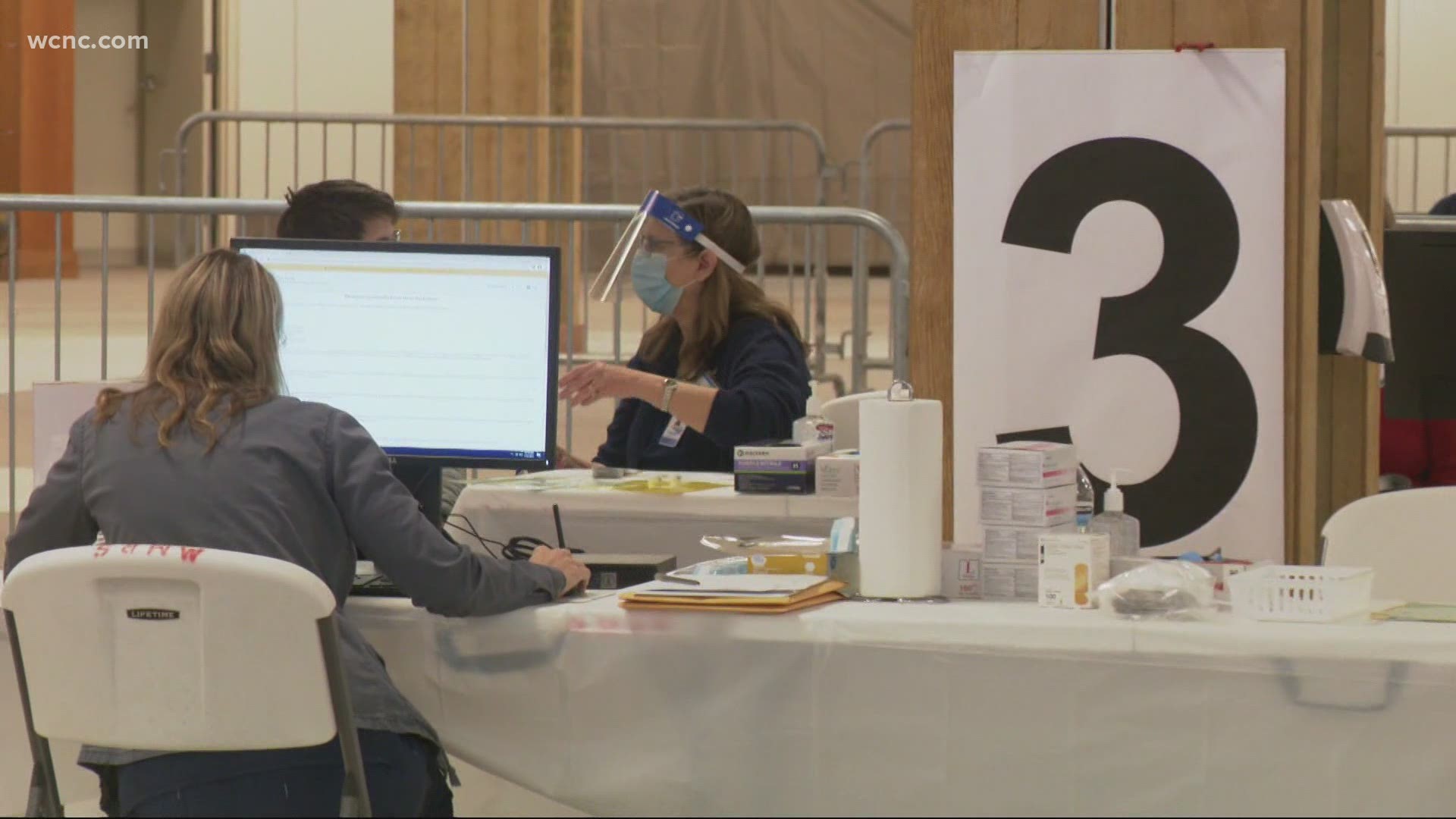CHARLOTTE, N.C. — Another highly contagious COVID-19 variant is on the map. Some have called it a "hybrid" of already known variants, and the Vietnamese government said it has been trying to contain a surge in cases linked to it.
Right now, health experts believe the main hallmark of the strain is easier transmission.
"There's no evidence that it is more lethal or that it causes more severe disease, and as far as we know, increased transmission is the main problem," Dr. Jane Kelly said.
Kelly is Assistant State Epidemiology with South Carolina's Department of Health and Environmental Control.
"It's quite similar to the variant that's circulating in India right now. It hasn't been fully studied, fully characterized yet, but it has some mutations that we've seen before that we've seen in other variants," Kelly said.
One of those familiar mutations is found in the U.K. variant, which is now the predominant one in the U.S., according to estimates from the Centers for Disease Control and Prevention.
A World Health Organization representative has said the organization is not even sure if the variant qualifies as a whole new variant, or whether it is simply the India variant with additional mutations.
Contact Vanessa Ruffes at vruffes@wcnc.com and follow her on Facebook, Twitter and Instagram.
While increased transmissibility is certainly a concern for surge potential, doctors say, vaccinations should still offer good protection.
"Current vaccines seem to be holding up well against variants," Dr. David Priest, an infectious disease specialist with Novant Health, said. "In some cases, the immune response people have to a particular variant is not quite what it would've been, but still seems to be adequate."
Priest assures this will not be the last variant discovered, but vaccinations can slow the emergence of new ones by and slowing the virus's spread and, therefore, mutate.
"We're going to continue to see this in various parts of the world, if there are still cases occurring," Priest said. "There are going to be reports that we've found another version that has similar mutation to other versions around the world, and those often develop independently of each other."



